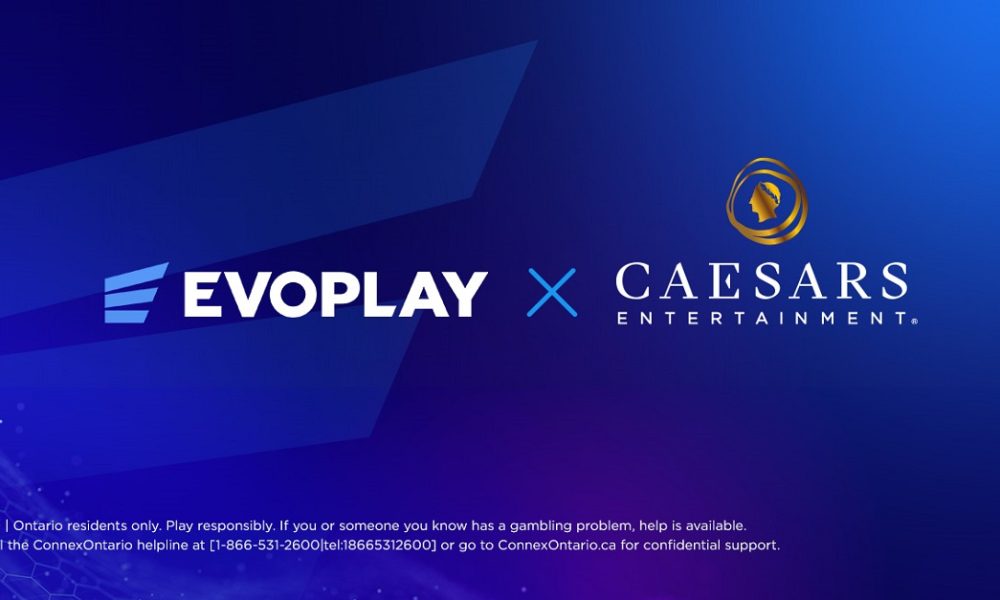

Canada
Kambi Group plc expands Americas reach with Island Luck partnership
The world’s trusted sports betting partner signs agreement to become the exclusive online sportsbook provider to market leader in The Bahamas
Kambi Group plc, the leading global sports betting supplier, has signed a multi-year agreement to become the online sports betting partner of Island Luck, the leading gaming operator in The Bahamas.
The partnership will see Island Luck leverage Kambi’s award-winning sports betting and technology services to upgrade its current sportsbook, offering Bahamians a best-in-class online betting experience.
Established in 2009, Island Luck is licensed by the Gaming Board for The Bahamas and is the largest gaming company in the country, offering online sports betting, casino and lottery throughout the islands.
The Island Luck partnership expands Kambi’s reach in the Americas region where it recently secured deals in Argentina and Peru, in addition to powering sports betting launches across multiple US states.
Kristian Nylén, CEO and Co-founder, Kambi, said: “We are delighted to have finalised this agreement with Island Luck, extending Kambi’s presence in the Americas and further strengthening our global network.
“As a local market leader in The Bahamas, Island Luck is a perfect fit for Kambi and we look forward to working closely with their team to deliver an industry-leading sports betting experience to its players.”
Sebas Bastian, CEO, Island Luck, said: “Our sports product is a significant, strategic and important vertical for our group and after considerable research, it was evident that a strategic partnership with Kambi, a global leader in the sportsbook space, was the right decision for us.
“We are extremely happy to partner with Kambi to provide our customers with a superior sports betting experience and to provide us with cutting-edge risk management tools.”
Canada
absolutebet Secures AGCO Registration as an Internet Gaming Operator in Ontario

Internet Gaming Operator by the Alcohol and Gaming Commission of Ontario (AGCO).
This significant milestone authorizes absolutebet to offer regulated iGaming services in Ontario’s legal market under the oversight of AGCO and iGaming Ontario (iGO).
The registration marks a key step in absolutebet’s mission to bring a trusted, responsible, and innovative online casino experience to Ontario players. absolutebet is committed to operating with integrity and transparency, meeting all provincial standards for player protection, responsible gambling, anti-money laundering, and game integrity.
“Securing AGCO registration is more than a milestone—it’s the start of absolutebet’s journey in one of the most exciting regulated markets in the world,” said Chen Truman, Founder of absolutebet. “We are building a brand that will grow with the Ontario community and set the stage for future expansion.”
On the regulatory milestone, Krisztina Kalla, Legal & Regulatory Compliance Advisor of absolutebet, commented: “I’m incredibly proud to see all the hard work behind this license pay off. Securing AGCO registration has taken months of preparation and close collaboration with regulators and partners. I am very happy to see the result of that work, and even more excited as we move into the launch phase and open up the absolutebet community to Ontario players in a fun and responsible way.”
Ontario is recognized as one of the most competitive and fast-growing regulated iGaming markets in North America. With AGCO registration secured, absolutebet will move forward with the final stages of its iGO onboarding process in preparation for launch.
The post absolutebet Secures AGCO Registration as an Internet Gaming Operator in Ontario appeared first on Gaming and Gambling Industry in the Americas.
Alex Malchenko Head of Sales at Evoplay
Evoplay strengthens Ontario presence in partnership with Caesars Entertainment

Evoplay, the award-winning game development studio, has partnered with Caesars Entertainment to expand its footprint in the Canadian market, following its initial entry earlier this year. The partnership integrates 20 of the studio’s top-performing titles onto Caesars Palace Online Casino, Horseshoe Online Casino and Caesars Sportsbook & Casino in Ontario, including fan-favourites such as Hot Triple Sevens, Triple Chili, and The Greatest Catch Bonus Buy.
Having announced its official entrance into Ontario in March, the collaboration with Caesars marks a significant step in Evoplay’s local strategy. Further standout releases, such as Inner Fire Bonus Buy and Hot Volcano, also launched as part of the initial package, with additional player favourites, including Fruit Nova and Ice Mania.
The collaboration underlines Evoplay’s commitment to working with leading operators to deliver high-quality content tailored to regional audiences.
Alex Malchenko, Head of Sales at Evoplay, said: “Launching with Caesars in Ontario marks a key milestone in our North American strategy.
“It reflects both the strength of our portfolio and our commitment to providing innovative, high-performing content to operators of the highest caliber.”
Ricardo Cornejo Rivas, Vice President of Online Gaming at Caesars Digital, said: “Evoplay brings a fresh and dynamic approach to online gaming, which we’re excited to offer to our players in Ontario. This portfolio of standout titles adds to our growing content library and furthering our ongoing goal of delivering top-tier entertainment experiences to our players.”
The post Evoplay strengthens Ontario presence in partnership with Caesars Entertainment appeared first on Gaming and Gambling Industry in the Americas.
Canada
iGaming Ontario Appoints Joseph Hillier as its New President and CEO

The iGaming Ontario Board of Directors has announced Joseph Hillier as the organization’s new President and Chief Executive Officer, effective September 8, 2025. Joseph’s depth in the Ontario igaming market combined with successful public and private sector careers make him the ideal President and CEO at this critical point in iGaming Ontario’s growth.
Joseph was most recently Chief Strategy Officer and Corporate Secretary at the Alcohol and Gaming Commission of Ontario (AGCO), where he delivered significant strategic and regulatory initiatives across the province’s alcohol, cannabis, gaming, and horse racing sectors. Prior to the AGCO, he served as Chief of Staff to Ontario Attorney General Hon. Doug Downey and led the development, launch and implementation of Canada’s first private sector-driven igaming market and the creation of iGaming Ontario. Joseph also spent more than a decade working in the financial and legal services sectors.
The Board expressed its sincere thanks to David Smith for serving as Interim President and Chief Executive Officer since Martha Otton’s retirement.
The post iGaming Ontario Appoints Joseph Hillier as its New President and CEO appeared first on Gaming and Gambling Industry in the Americas.
-

 gaming3 years ago
gaming3 years agoODIN by 4Players: Immersive, state-of-the-art in-game audio launches into the next generation of gaming
-
EEG iGaming Directory9 years ago
iSoftBet continues to grow with new release Forest Mania
-
News7 years ago
Softbroke collaborates with Asia Live Tech for the expansion of the service line in the igaming market
-
News7 years ago
Super Bowl LIII: NFL Fans Can Bet on the #1 Sportsbook Review Site Betting-Super-Bowl.com, Providing Free Unbiased and Trusted News, Picks and Predictions
-
iGaming Industry8 years ago
Rick Meitzler appointed to the Indian Gaming Magazine Advisory Board for 2018
-
News7 years ago
REVEALED: Top eSports players set to earn $3.2 million in 2019
-
iGaming Industry8 years ago
French Senator raises Loot Boxes to France’s Gambling Regulator
-
News7 years ago
Exclusive Interview with Miklos Handa (Founder of the email marketing solutions, “MailMike.net”), speaker at Vienna International Gaming Expo 2018









